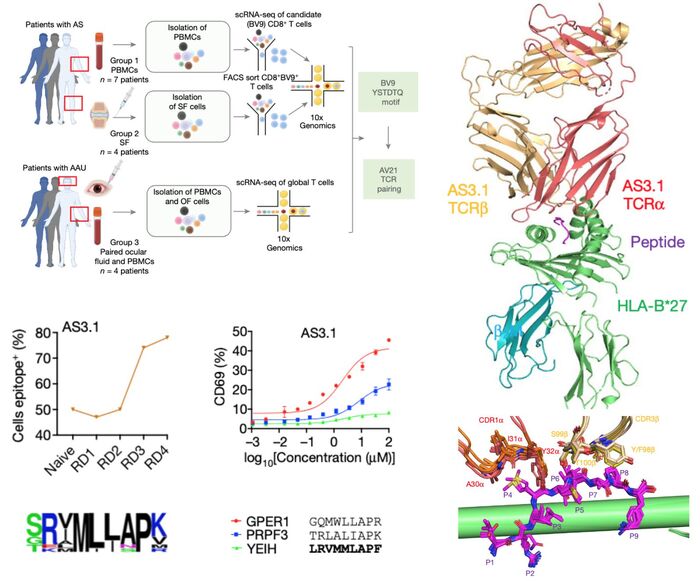Press-room / news / Science news /
Identification of HLA-B*27-bound peptides recognized by TCRs associated with ankylosing spondylitis
Ankylosing spondylitis is an autoimmune rheumatological disease, where aberrant immune response against self-antigens is considered as a main trigger of the pathology. Up to date identification of antigen epitopes recognized by specific T cell receptors (TCRs), especially self-epitopes, remains tricky challenge and there is the very limited list of TCRs with characterized antigen specificity.
Previously in the Laboratory of comparative and functional genomics of Shemyakin-Ovchinnikov institute of bioorganic chemistry RAS we described the full amino acid sequence of a TCR associated with ankylosing spondylitis (AS). Collaborative efforts of researchers from Universities of Stanford and Oxford, as wells as Washington University of St. Louis and Shemyakin-Ovchinnikov institute of bioorganic chemistry, allowed to reveal sequence of several other AS-related TCRs and describe the peptide motif recognized by such TCRs. Structural analysis of TCRpMHC complexes allowed to identify shared binding motif present in both self-antigens and microbial antigens that engages AS-related TCRs. These findings support the hypothesis that cross-reactivity between microbial and self-antigens can be considered as a trigger event for pathogenesis of ankylosing spondylitis. Deciphering of antigen-specificity of the AS-related TCRs allows studying of the role of such T cells in pathogenesis and development of new therapeutic approaches for ankylosing spondylitis. The results of the study have been recently published in Nature.

december 13, 2022


